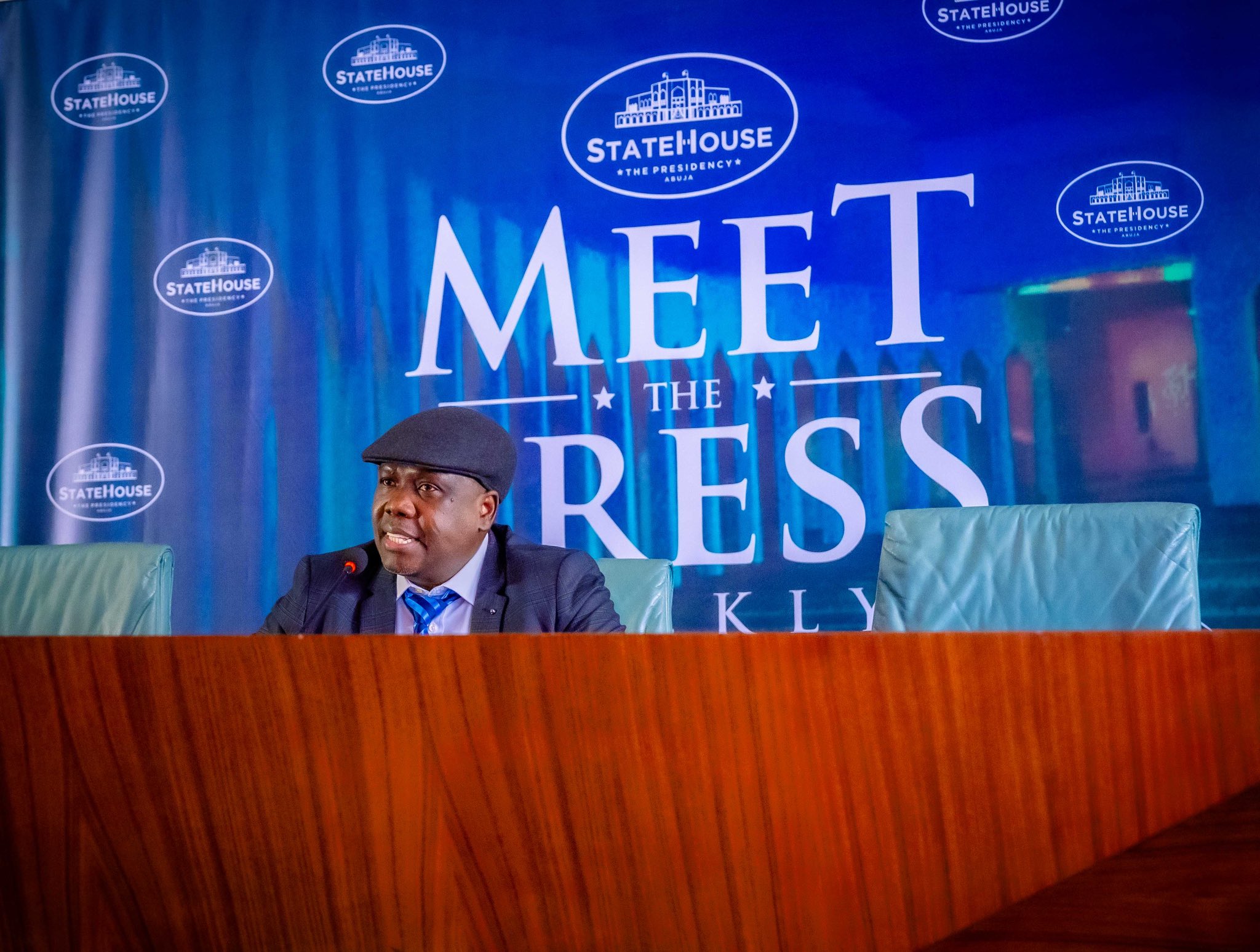In a whirlwind day of political maneuvering and media intrigue, Daniel Bwala’s brief stint as “presidential spokesman” was swiftly downgraded to Special Adviser on Policy Communication by the Tinubu administration. This re-designation followed a terse clarification by Bayo Onanuga, Special Adviser on Information and Strategy, who firmly stated that no single individual serves as the presidency’s spokesperson.
The drama unfolded on Monday, November 18, barely a week after Bwala’s initial appointment as Special Adviser on Media and Public Communication. Upon his arrival at the State House, insiders say Bwala attempted to assert himself by addressing the press corps in the presidential villa — a move viewed as overstepping his newly assigned role.
A Premature Takeover
An insider described Bwala’s actions as an effort to seize control in Onanuga’s absence. “He tried to assume command of the office as though he was the sole media face of the presidency,” the source said. Onanuga was out of the country, accompanying President Bola Tinubu to the G20 summit in Brazil.
Bwala’s unsanctioned press engagement included statements suggesting he had assumed the role previously held by Ajuri Ngelale, Tinubu’s former Special Adviser on Media and Publicity, whose exit in September created a vacuum.
“Everyone knows their responsibilities,” Bwala told reporters, signaling a broader intention to take on a more public-facing role. He even updated his designation on X, formerly Twitter, to include “Spokesperson (State House),” a title not reflected in the original announcement.

A Furious Tinubu Reacts
Far from the unfolding drama in Abuja, President Tinubu, upon hearing of the developments, reportedly instructed Onanuga to set the record straight. By Monday evening, Onanuga issued a clarification:
“There is no single individual spokesperson for the presidency. All three special advisers in the communications team will collectively serve as spokespersons for the government.”
The president’s directive further outlined a reshuffling:
1. Sunday Dare was elevated to Special Adviser, Media and Public Communications.
2. Bwala was reassigned to Special Adviser, Policy Communication.
A Failed Media Coup?
The incident underscores the power struggles within Tinubu’s historically large media team, a byproduct of his broad political coalition. The rivalry reportedly traces back to Tinubu’s son, Seyi Tinubu, who played a key role in Bwala’s appointment. Seyi is said to have encouraged Bwala to emulate the assertive style of his predecessor, Ajuri Ngelale.
“Bwala followed the script Seyi gave him — to take over the media reins aggressively. Unfortunately, that approach collapsed in less than a day,” another insider revealed.
A Team in Disarray
This episode highlights growing concerns about the presidency’s communication efficiency. Critics note that during the Indian Prime Minister’s visit to Nigeria, it took nearly a full day for the Nigerian press team to release official statements and photos — a glaring delay compared to their Indian counterparts, who actively updated the world in real time via social media.
Such lapses point to an underlying lack of cohesion within Tinubu’s sprawling media team. Observers worry that these inefficiencies could undermine the administration’s ability to shape its narrative both domestically and internationally.
A House Divided
As Tinubu’s presidency navigates these early growing pains, questions remain about the coherence of his communications strategy. With a sprawling media apparatus and overlapping roles, the risk of further public missteps looms large — unless the presidency can deliver clarity and unity from within.




